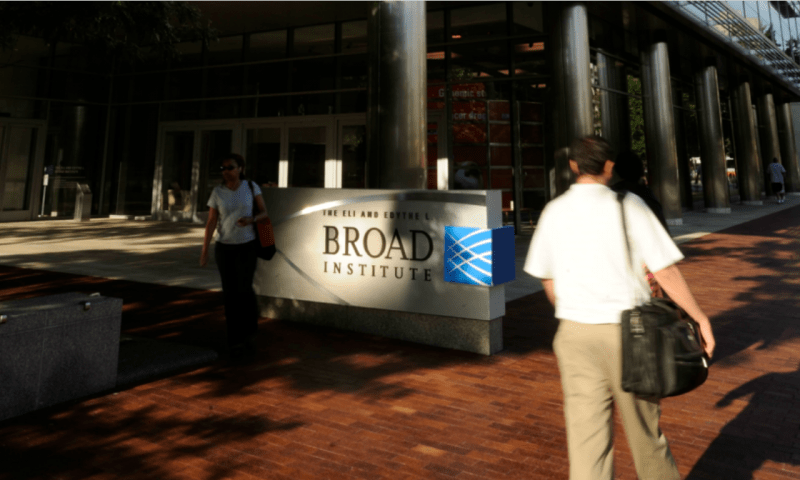The Broad Institute of MIT and Harvard has launched a new, major initiative to support machine-learning-powered research into the life sciences.
With a $150 million endowment gift courtesy of the former Google CEO and his wife, the Eric and Wendy Schmidt Center will serve as a home for a global network connecting academic and industry researchers across multiple scientific disciplines—with the aim of potentially creating a new one by merging tech, biology and the objective of improving human health.
Based at the Broad Institute’s campus in Cambridge, Massachusetts, the center hopes to capitalize on the widespread adoption of big data and cloud computing in healthcare R&D alongside parallel advancements in DNA sequencing, single-cell analysis and digital imaging.
“The pandemic has shown us that prioritizing science, innovation, and research is one of the greatest investments we can make in our future,” said Eric Schmidt, who also serves on the Broad Institute’s board.
“Beginning with its origins in the human genome project and its extension into statistical genetics and single-cell genomics, the Broad Institute has excelled at connecting the world’s best scientists and software engineers and equipping them with the right tools to seek answers to questions previously thought impossible,” he said.
The Schmidts’ $150 million gift—marking the largest from the pair’s philanthropic initiative, Schmidt Futures—will also be matched with an additional $150 million endowment from The Broad Foundation.
The center itself will be co-directed by Caroline Uhler, an associate professor of electrical engineering and computer science at MIT, and Broad’s chief data officer, Anthony Philippakis.
It also plans to gather talent from MIT, Harvard and its teaching hospitals and to partner with the Broad’s established artificial intelligence work, including the Models, Inference & Algorithms Initiative and the Machine Learning for Health effort.
“By connecting clinicians with biotechnologists and data scientists trained in diverse areas—from mathematics to computer science, electrical engineering and computational biology—we can begin to gain unprecedented insights into the biology of cells, tissues and organisms,” Uhler said.
The program will also build upon the Broad’s existing technology partnerships with Bayer, IBM, Intel and Verily and bring in a new set of collaborators, including: Mila, the Quebec AI Institute; the European Laboratory for Learning and Intelligent Systems; the Oxford Big Data Institute; and The Alan Turing Institute—as well as connections with the Mayo Clinic, Geisinger, Genentech, AstraZeneca, Novartis, DeepMind, Google Research and Microsoft.
“Learning the programs of life will require new and collaborative approaches to creating data platforms, analytical tools and biotechnologies,” Philippakis said. “By bringing them together, we can nucleate discoveries at the interface of biology and machine learning, discoveries that may ultimately transform medicine and impact the lives of many suffering from disease.”
“The life sciences are in the midst of a data revolution,” Philippakis added. “This is a unique moment in time, one where we can bring the modern tools of machine learning to bear on questions of fundamental importance to biology and medicine.”

